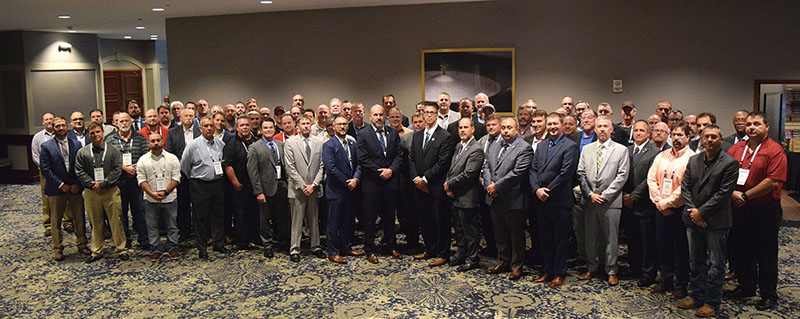Brothers and Sisters,
It’s time to set the record straight. I am certain many of you have seen the recent anti-labor articles that have been published regarding our recent win in the U.S. Court of Appeals for the 5th Circuit. That win has apparently struck a raw nerve with the carriers and the minions who eagerly await their master’s call. Make no mistake, that decision struck a fatal blow to the carriers’ plans to put you on the unemployment line. Rather than accept defeat, their apologists are trying to spin this loss into something that it is not. The long history of crew consist cannot be denied. For decades, we have battled with the carriers over their fevered attempts to cut costs and put your life at risk by down-sizing crews. This current round of negotiations is no different. They sought to eliminate your job and operate trains in perhaps the most dangerous way possible. Standing up for you, that’s what this case was about.
They have severely underestimated the fight in each and every one of us; the sheer grit and determination that we have to defend our families, our jobs, and the overall welfare of our co-workers and the general public alike. The truth that these apologists fear to admit is that in this Union, the dues-paying members are the Union — period. There is no divide between the “Union” and the “dues-paying members.” There is only a “Union.” We stand together now more than ever.
To salve their masters’ wounds, those “commentators” try to spin this as union officers protecting their own jobs. They know not of what they speak and their ignorance is evident in the web that they weave. They used nameless sources in an attempt to add credibility to a tall tale that anyone with true insight would know is far from factual. The fact remains that all officers in this newly elected SMART-TD administration are firmly united.
The Railway Labor Act protects agreements from being changed except through the processes provided for in Section 6 of the Act. The carriers had agreed to crew consist provisions years ago. Not only that, but to end the constant battle over crew consist, the carriers also agreed to moratoria provisions that barred any Section 6 Notice over crew consist until the last protected employee voluntarily left service. That event has not yet happened. These are the facts, but they are nowhere to be found in any recounting in the carriers’ favored publications. Rather, what you are treated to is the old worn song of the anti-unionist. The apologist who says trust the carriers, they only want what was best for you. Right. The carriers want to give you lifetime protections? At what cost? And when they decide they don’t like that deal any more, will they ignore it just like they have tried to ignore our moratoria provisions and put you on the street? These apologists assert that they have some inside scoop, yet I have never witnessed any “commentator” at the bargaining table. They are outsiders.
What else is missing? Acknowledgement of the only thing the carriers care about — their bottom line. Money comes before all else. That is evidenced by the unbelievable lengths they will go to argue that you are paid too much, that your insurance is too expensive, and that they are going broke as a result of the costs of our Agreements. You are the target in their zeal to improve their stock price. That is a sad fact that you will not find in any of those articles.
Another fallacy that is being sold — technology will do everything more safely. That simply is not true. Their technology is fallible. It doesn’t work like they wish it would nor as advertised. In fact, it’s not a matter of if it will break down, but when. We have collected thousands of Failure Reports across all Class Is and the data is terrifying. Never has the human element been more important in railroad operations. Engineers spend more time with their faces in multiple screens trying to manipulate and interpret the ambiguous systems than they do focusing on the territory ahead. Conductors are relied upon now more than ever, as they are the eyes and ears of the train crew, and we have the stories to prove it.
The articles also attempt to scare you by asserting that the carriers will unilaterally reduce crews at the end of the last-person-standing moratorium. That is not how the Act works. The expiration of the moratoria does not sunset crew consist. Rather, moratoria bar either party from serving a Section 6 notice to amend or change the current Crew Consist Agreements until the last protected employee leaves. Once that happens, then a Section 6 Notice can be served and the long and drawn-out process of the RLA engaged to negotiate the next generation of agreements.
Railroad workers have all been lied to long enough by management, and we can smell lies coming from a mile away.
As a word of advice to Railway Age, I would caution them against living in the past and trying to play SMART-TD against the BLET. We are working closely together in the Coordinated Bargaining Coalition (CBC) in national handling and on the various other disputes that the carriers have forced us into.
Brothers and Sisters, do not be discouraged, and do not be swayed by those with ulterior motives. We are in this fight together, and we are moving forward.
Jeremy Ferguson
President — Transportation Division


